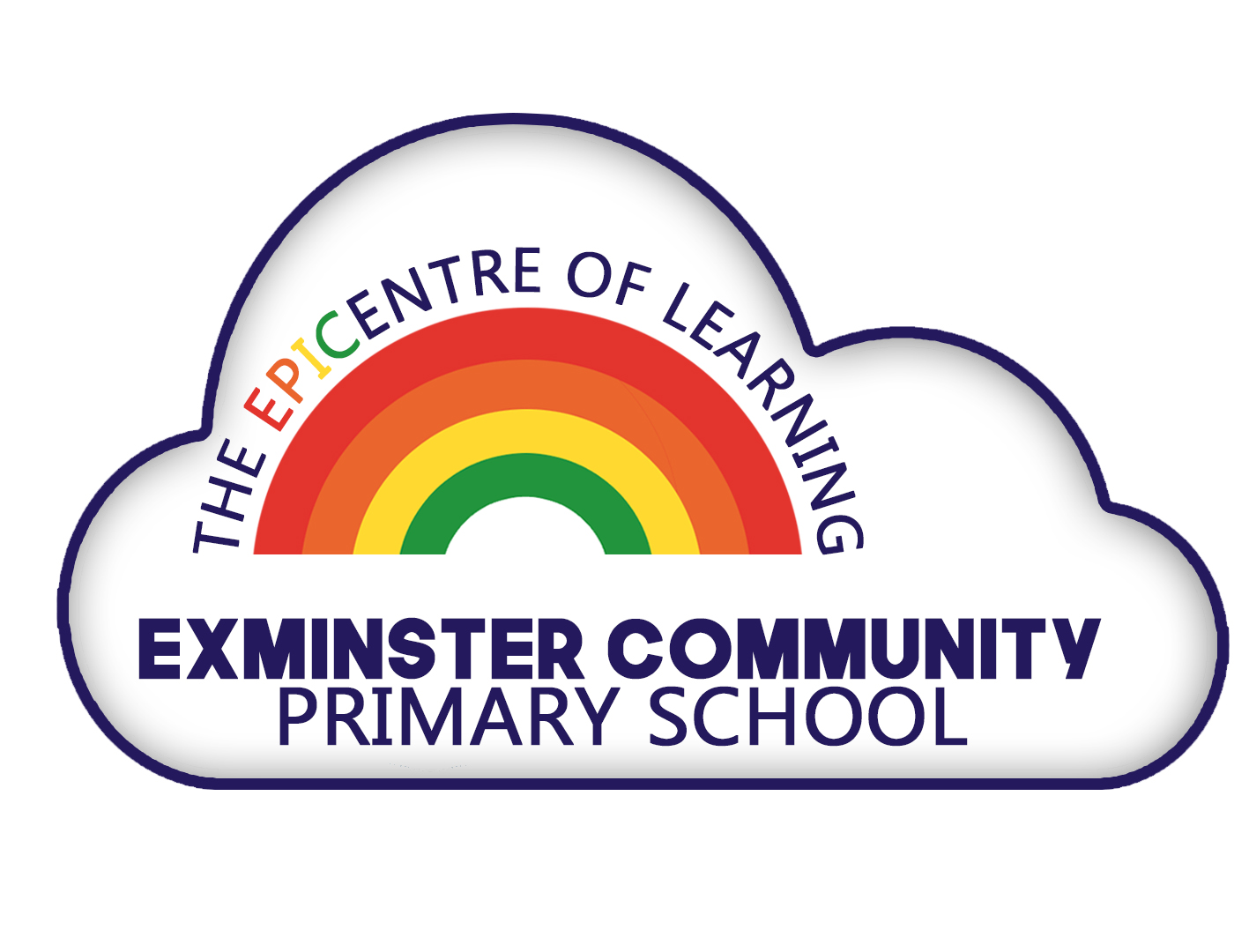English Intent
Intent:
English is the essential ingredient for the best education of our pupils at Exminster Community Primary School. It is both an important subject in its own right and the platform for accessing the whole curriculum. At a fundamental level, English allows children to communicate, to form friendships and make their needs known. It connects us in the global world that we are a part of as it is the most widely spoken language in the world and is generally regarded as the language of the internet as the majority of websites are written in English. Recent research by the National Literacy Trust has shown that vocabulary development from as young as the age of five is linked to success in exams taken at sixteen; this is why it is imperative that we model high standards of Literacy and have high expectations of our children.
Implementation:
Reading
Reading is one of the most important aspects of school life. The teaching of reading includes the technical aspects of decoding language and making meaning from text as well as the opportunity for pupils to develop a love of reading.
Through the Foundation Stage and Key Stage One, our pupils follow a phonics reading scheme called Success for All Phonics. This scheme is a validated scheme and children are taught a daily reading and phonics session. Children have access to high quality books which they read daily as well as take home to support and revisit their learning in school.
We aspire to develop a love of reading culture where children enjoy reading and are exposed to a wide range of authors and texts. Children will also bring home a ‘free choice’ text to develop their vocabulary and interests in stories and the wider world.
By Key Stage Two, the great majority of pupils are reading fluently. If children are not secure with their phonic understanding they will have access to the Success for All Phonics catch up intervention called Tutoring with the Lightning Squad. This is a programme which will support the children with addressing gaps in understanding and their reading fluency. Class teachers monitor children’s reading choices through looking at the Accelerated Reader quizzes children are taking, and the scores they are achieving with these. We intend for all children to be reading books above the AR 5.0 point level by the end of Year 6 and scoring at least 85% on the book related quizzes.
Writing
|
Our English sequences are based on high-quality texts, with units lasting between one and six weeks. The children are taught using three Talk for Writing strategies Immersion, Innovate and Invent to further develop and copy patterns in writing and speaking and listening skills. We believe that each of these stages are crucial for the development of good quality writing and the children receive adult or peer feedback at various stages of this process. At the core of our English teaching is the understanding of spelling and grammar. Grammar is taught mainly through high-quality texts with discreet input when required. Children are given lots of opportunity to see the grammar aspects that they are learning in a variety of contexts within the texts that they are reading, and are able to apply this within their writing. Spellings are taught in Key stage One through learning to spell Common exception words (red words) and in Year two onwards from learning particular spelling rules and strategies. The children are trained to locate spelling errors and edit their own misspellings and use their spelling dictionaries to make a note and refer to these errors when required. Dictionary skills are taught in Key stage two so children can independently spell unknown words. We learn the correct formation of letters in Foundation and Year one so the children are ready to begin joining their writing by the end of Key Stage one. We learn letter rhymes which support the children with formation. The handwriting scheme we use is embedded in the Success for All Phonics scheme which is taught in EYFS and Year 1. Within Key Stage two, cursive joins are continuously reinforced and practised. |
Speaking & Listening
Oracy has a central place in our curriculum, reflecting the vital importance of spoken language in our pupils’ development. We aim to broaden children’s vocabulary through our staff’s high standards of literacy, weekly word games, our daily word of the day and through reading good quality texts. Pupils are supported to speak in Standard English at all times whilst at school. There are many opportunities to talk and communicate across the curriculum as this is recognised as being a key way in which pupils develop their learning; we use the collaborative strategies to ensure that the talk is purposeful and promotes positive interdependence.
Pupils are supported to talk about their ideas, helping to consolidate their learning. In addition to making formal presentations and participating in debates, pupils are challenged to elaborate and explain, build upon and challenge clearly their own and others’ understanding and ideas.
Our End of Key Stage Two results show that our English Curriculum is a success.
Our children show a love of reading and have a clear understanding of what they read and how to select books from our wonderful library.
We have an extensive selection of subject specific books related to GOAL learning in school which the children can access to support their learning as well as further their learning in a range of subjects.
Children are proud to share examples of their writing and children often have the opportunity to share and read their writing aloud to their peers and other classes in the school as well as share their writing in the wider community.
Children showcase their understanding and developing skills as a writer by extending their writing in other subjects in GOAL.
Impact:
http://www.exminster-primary.devon.sch.uk/about-us/results

